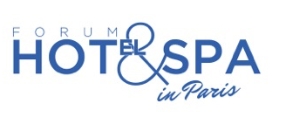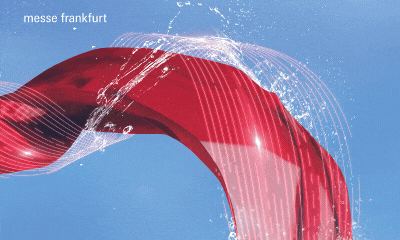 |
THE HOTEL&SPA FORUM PUTS WELL-BEING AT THE HEART OF THE EXPECTATIONS OF GUESTS AND STAFF IN THE LUXURY HOSPITALITY INDUSTRY (France)
“In less than five years probably, we're going to have wellness officers in hotels, and they'll be part of the Executive committee of the hotel because they will cross from human resources. They'll work with various departments, with the animation departments, with the spa and the fitness” |
Catégorie : Europe - France - Économie du secteur
- Tendances, avis d'expert
Article rédigé par Vanessa Guerrier-Buisine le mardi 20 juin 2023
At the latest HOTel&SPA Forum organised by Vladi Kovanic at the Four Seasons George V Hotel in Paris, the focus was on authentic Wellbeing, a theme that reflects a time of change. A change that brought back to the roots of well-being during the fascinating conversation between Cornelia Kausch, Managing Director and Leadership Coach, CK collective and CK hospitality in Germany, and Andrew Gibson, international specialist in Wellbeing and hospitality in Sweden.
The topic of the debate was “Leadership: the challenges with the cost and scarcity of labour and the comprehension of wellness”.
Andrew Gibson started by pointing out that wellness suffers from the same problems as other hotel departments. “There are massive difficulties with labour in the hospitality industry. Major hotel brands are therefore rethinking the way they design and operate their spas, to minimise labour and replace it with something else”.
People, the added value of wellness
Wellness is no exception to the technological boom: “We've gone from low tech, high touch to high-tech, high touch; are we now going to high-tech, low touch?” asked Andrew. And yet, while technology can streamline the customer experience in all its administrative facets, the human element is at the heart of the well-being experience for hotel guests.
Cornelia Kausch also called on hoteliers to be vigilant about the over-intensive use of technology to the detriment of the human element in their wellness offerings. “Even if the high-tech, low touch is cost-effective, it's the wrong choice in terms of profitability”, she warned.
According to the two experts, while the technological revolution has its virtues, the real luxury will remain the touch because the machine cannot feel movements and changes in energy. This is a very important element of what the touch brings, and brands need to find the right balance according to their DNA. “Nature is the new luxury, the human touch will be the new luxury” insists Cornelia.
Wellness, an investment rather than just a cost
According to Andrew, too many hotel projects are designed from the very beginning by architects and designers, who surround themselves with experts in F&B, accommodation, etc. and who realise lately that they should include a wellness consultant.
He believes that a change of mindset is needed, moving from the notion of spa to the notion of wellness.
Hoteliers' idea that spa only represent a marginal part of their revenue is biased. If we look at the share of marketing invested in all the services offered by a hotel, most efforts are focused on the accommodation and F&B sectors. On the other hand, according to Andrew, if we look at the spending of customers who have used the spa compared with those who have not, we see much higher spending by spa customers. They come accompanied, they book suites, they spend more on F&B, and so on. “Wellness encourages guests to spend more time in a hotel,” explains Andrew Gibson, who is convinced that far from being a mere cost for the hotel industry, wellness, and therefore the spa offer, should be a real source of revenue for different departments.
A valuable synergy for teams
The presence of a spa creates a real synergy in a hotel, since spa customers will extend their relaxation by spending time in the lobby, restaurant, etc. And this synergy will have an impact on the teams, who can feel better surrounded by customers who value well-being. Ultimately, staff turnover is reduced because the hotel as a whole is a place of well-being.
Furthermore, for Cornelia, this approach includes the community. When a hotel is dedicated to wellness, it has an impact on the local community. The locals want to work there. “At the end of the day, the customer is one side of the coin, but the employee is the other side, and they are equally important because every employee is going to become or has a potential to become your guest, wherever it may be tomorrow” she adds.
The spa awakens
Andrew Gibson is in no doubt about the growing role that spa professionals will play in the years to come. He believes that “In less than five years, probably we're going to have wellness officers in hotels, and they'll be part of the Executive committee of the hotel because they will cross from human resources. They'll work with various departments. They'll work with the animation departments, with the spa and the fitness. […] Because they are the glue that puts the whole philosophy of the hotel together, and I think that's a career opportunity.”
For the two experts, before this can happen, it is essential to raise awareness throughout the hotel ecosystem. Those involved in wellness are an essential link in building customer loyalty, as well as employee loyalty.
|
|







